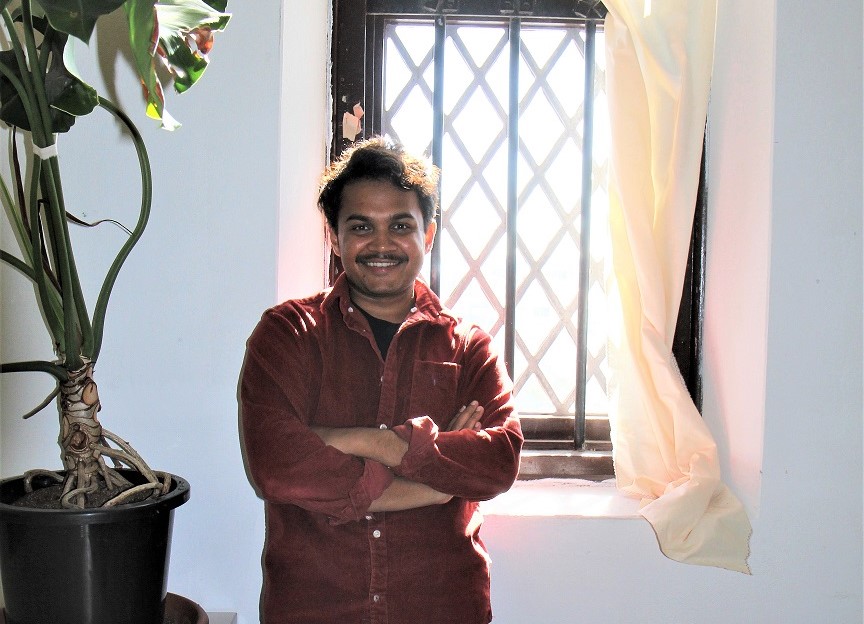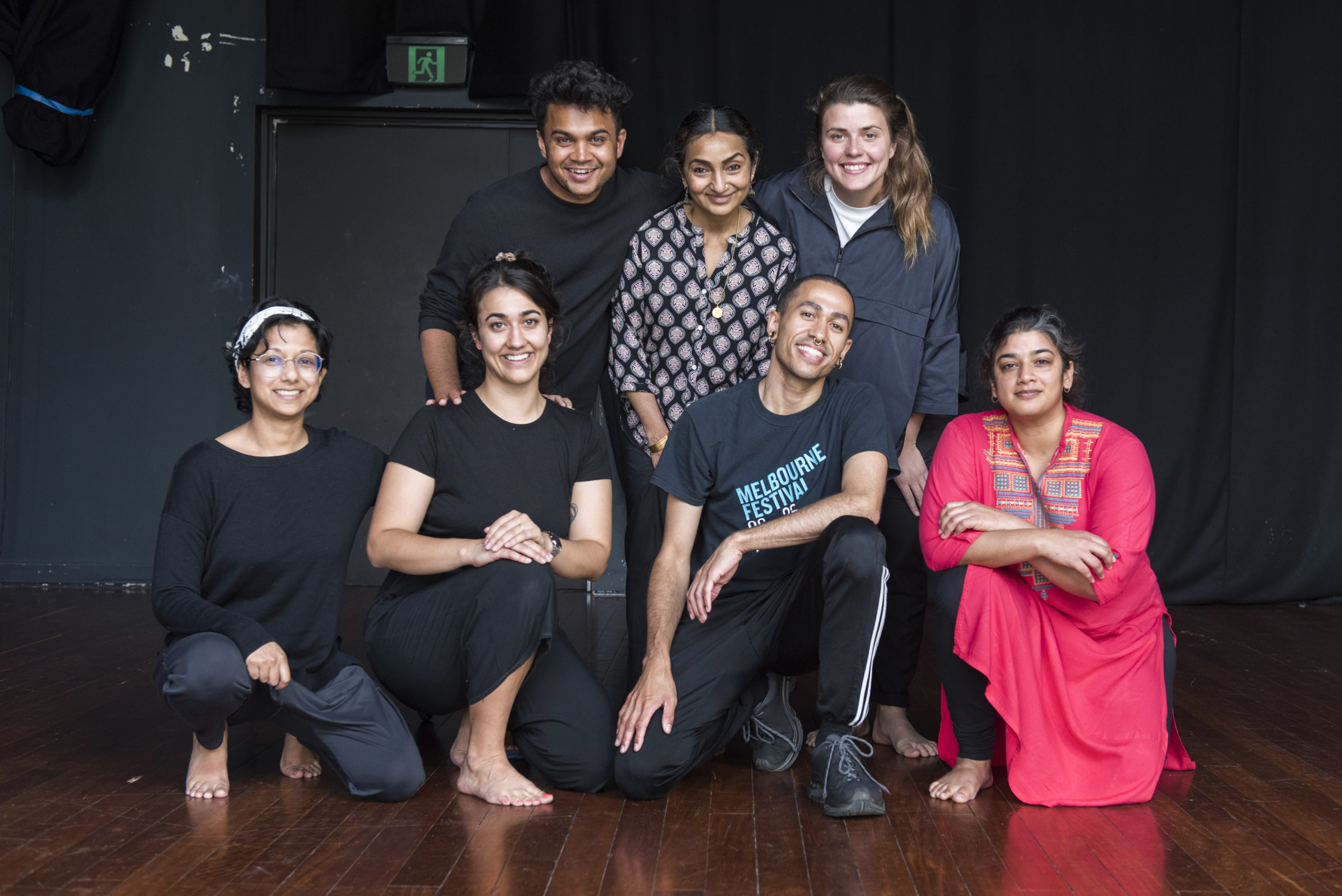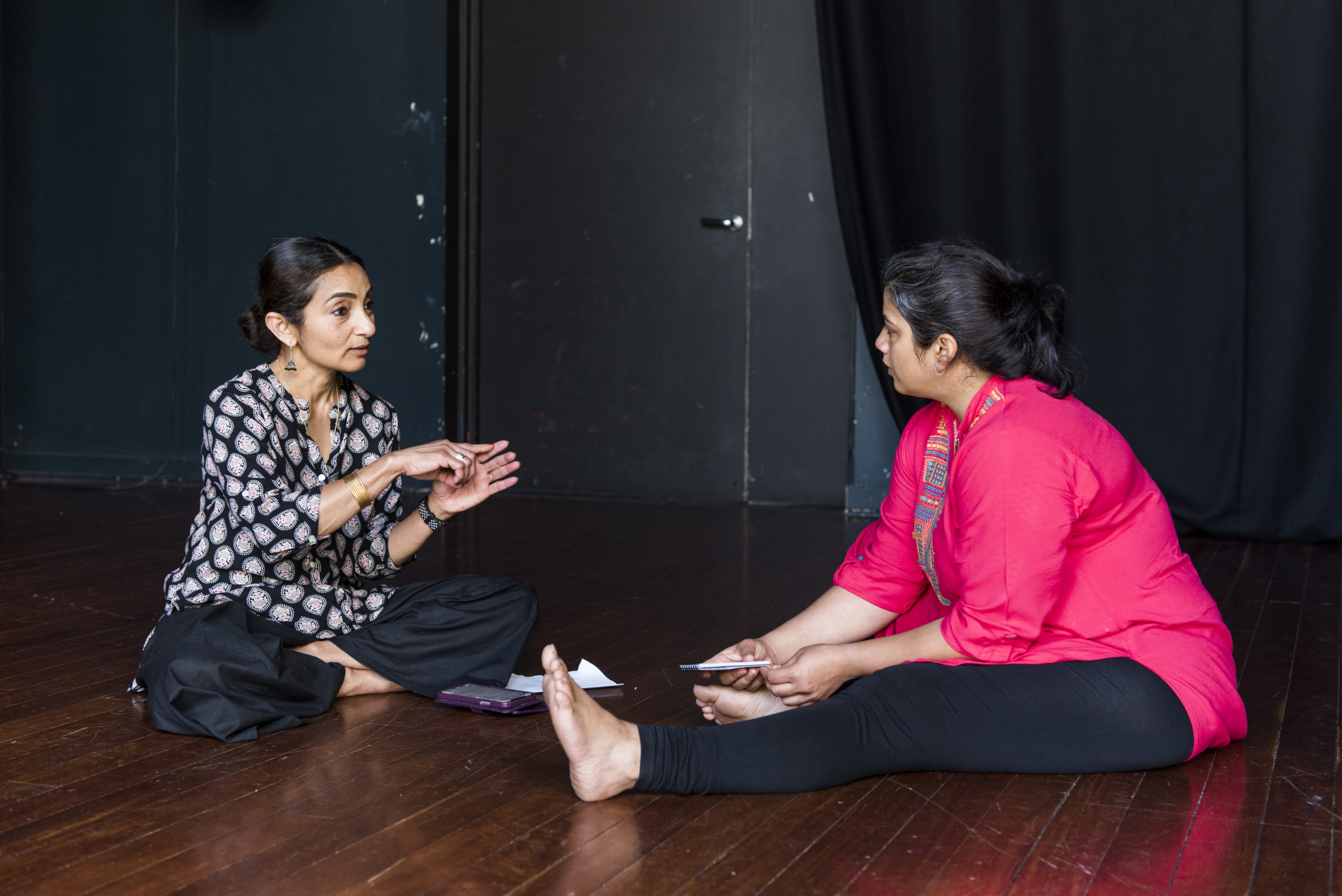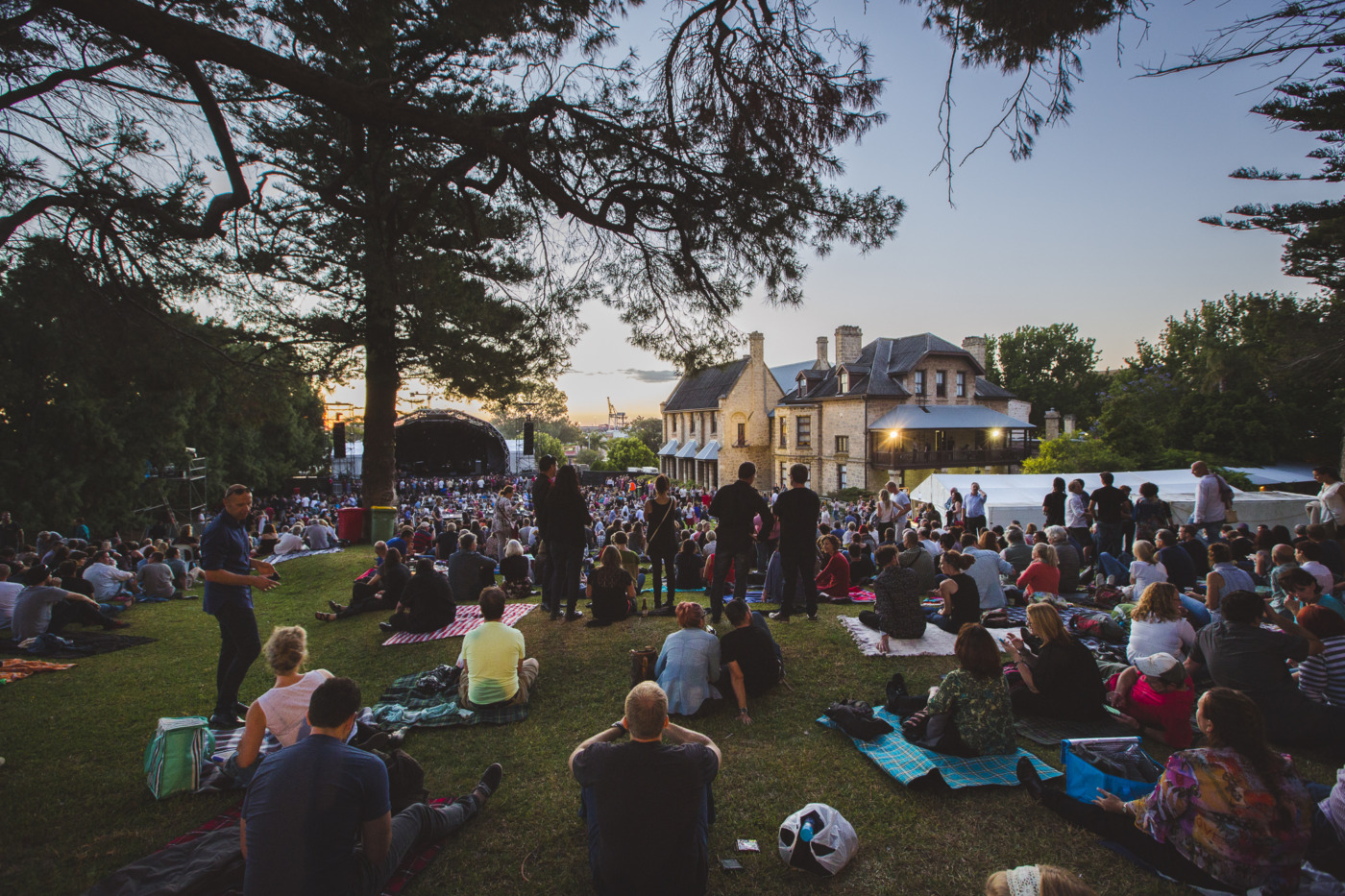An ambitious new theatre company dedicated to “making invisible stories visible”, Encounter was founded in 2021 by theatre-maker, writer and director Jay Emmanuel.
Currently in-residence at Fremantle Arts Centre, Encounter specialises in storytelling that embraces diversity, creating space for people of migrant, refugee and queer communities to speak their truth while revealing universal experiences of identity, community, and the search for belonging.
It’s an ethos that is entirely congruent with Jay’s artistic oeuvre. Migrating to Australia in 2009, Jay has forged a career that integrates his personal experiences, including his upbringing in India and classical training in Kathakali dance, while also seeking to achieve greater representation of marginalized voices on stage from the spectrum of communities that constitute contemporary Australia.
His critically acclaimed 2021 play Children of the Sea is archetypal of this approach. The culmination of two years of research and significant community engagement including more than 60 interviews, the play weaves together real stories of four maritime survivors who came to Australia by boat.
With a number of new projects on the horizon, we sat down with Jay in the studio at FAC to learn more about his vision for Encounter.
Prior to founding Encounter, you were primarily working as an independent theatre-maker. What sparked the creation of this new collaboration, and what gap did it seek to fill in the sector?
Encounter came from the need to tell stories authentically, to create change around the stories we see on our main stages. I grew up not having role models or stories where I could see people like myself on stage. With the creation of Encounter, I wanted to make sure those stories exist for the next generation. There are so many stories here in Perth, and indeed in Australia, but we often just don’t see them, or they are isolated to certain parts of the community. We want to be a place where those diverse narratives find expression, to be a sanctuary for solidarity. We see ourselves as shapers of the nation’s cultural future, that’s our duty.

Jay Emmanuel in the Encounter studio space at Fremantle Arts Centre
Your methodology is rather unique in that you perform significant research and consultation with marginalized communities, such as your work with refugee communities for Children of the Sea. Can you tell me a bit more about this process?
The work Children of the Sea was not only made with the community, it was about the community and the community was also on stage. We didn’t have any blueprints for that process, there aren’t many theatre companies that are creating this kind of work. The process is very heavily based in community arts and cultural development (CACD) processes. It involves rigorous consultation, research and also building trust with community groups over many years.
The stories we present on stage are essentially derived from people in the community; where community becomes active creators in the process and our artistic decisions are influenced by those conversations. For Children of the Sea, we had people from the refugee community on stage, telling their stories. We aim to build this kind of porous relationship between Encounter and the community.
Encounter’s vision is to create a platform for diverse storytelling and foster a diverse theatrical workforce. What strategies are you employing to make this happen?
One of the biggest challenges of making the kind of work we make is the shortage of actors, performance devisers, musicians, composers and designers from ethnically diverse backgrounds. The workforce is incredibly limited. Even searching nationally and (sometimes) having the resources to bring cast and creatives from around the country, it is still limited. It speaks to a greater problem in the system.
Our approach to capacity development sprung from Children of the Sea, where we did a lot of skills development with young people. From that, there came this idea of doing a youth ensemble where the cast of Children of the Sea are paired with five more young people who are going through a program where they get upskilled in theatre making practitioners from WA and around the world. This time, we have Roslyn Oades who is a verbatim artist from Melbourne and Kelli McCluskey from PVI Collective to facilitate practice sharing, and also other practitioners who will offer their expertise. Coming soon, we have an emerging artist program to foster the skills of practitioners who already have some experience.

Encounter creative development team – back row L-R: Jay Emmanuel, Sukhi Shetty Krishnan, Emily Kingsley; front row L-R: Sunili Govinnage, Asha Kiani, Tyrone Earl Lraé Robinson, Manjula Radha Krishnan. Photo credit: Christophe Canato.
Your productions often meld together diverse cultural practices and traditions, such as Kathakali dance, which are not often seen in mainstream theatre. Why is this approach so important to you?
Nurturing a diverse workforce is our number one priority, but our second priority is diversifying the stories we see on stage and how these stories are told. Our mainstream audiences are accustomed to seeing realism, naturalism, Chekov and Shakespeare, but in the Asia Pacific region alone, there are writers and artists and forms of storytelling and puppetry that have been around for thousands of years. But why don’t we see them on stage? Encounter is focusing on reviving these practices and remembering that they exist, and creating that link where we can bring them into the popular culture.
For example, training to be a Kathakali dancer takes about 12 years, but here in Australia it’s not really recognized as a valid practice in mainstream training, it is just placed in a box of ‘community arts’. So what we’re trying to do is push for other forms and theories of storytelling to be given equal value. And that’s why I guess I always go to the community for inspiration, because I feel that’s where a lot of the storytelling with authentic power and prowess exists, rather than just feeding into the status quo.
What kinds of cultural practices have you been integrating into your performances?
For example, in the last three weeks we were in the development of a new project called Sunset (working title). The ethos of creation is driven by curiosity and experimentation. In this development we used Kalari which is an ancient form of Indian martial arts, about 3000 years old. We use it for actor training, because our work tends to be more physical and visual. We also have been experimenting with vogue. It’s the language of the queer community, and it’s how we have come to claim our history and express our history, but it’s rarely seen in the theatre. So we do go from very ancient practices like Kalari to more contemporary practices like vogueing. We’ve also worked with Bharatanatyam which is a South Asian form of classical dance and Indonesian shadow puppets. We explore a diverse cultural terrain in our work. It requires us to translate between cultures, and to find accessible ways of communicating ancient myths, practices and rituals for a contemporary audience.

Encounter ensemble members Sukhi Shetty Krishnan and Manjula Radha Krishnan during a creative development workshop.Photo credit: Christophe Canato.
Encounter was launched at Fremantle Arts Centre in late 2021, and you’ve had a studio space here for almost six months. How are you finding it so far? What kind of activities has the space enabled?
This studio has been really instrumental as a place to gather. We are able to use it for script developments, script workshops and choreographic work, gatherings, donor events etc. Also, our associate artists – our core performers who we bring across all developments – can come and use the space as they like.
We’ve also used the Pavlich room for a couple of creative developments and workshops on devising, puppetry and vogueing. And of course, we had the launch of Encounter Theatre there some months ago. It’s been really great to use as a space to gather our supporters, a place where we can invite people to hear about our work.
Being situated at FAC also helps a lot because people recognize this place, they trust it. It’s an iconic Fremantle hub. Being surrounded by artwork in the galleries and working alongside studio artists from different disciplines is quite inspiring as well, on a conscious and sub-conscious level. I’ve had great conversations with other artists in the grounds. It’s really become the home for our company here.
Support the work of Encounter by contributing to their Australian Cultural Fund donor drive.

